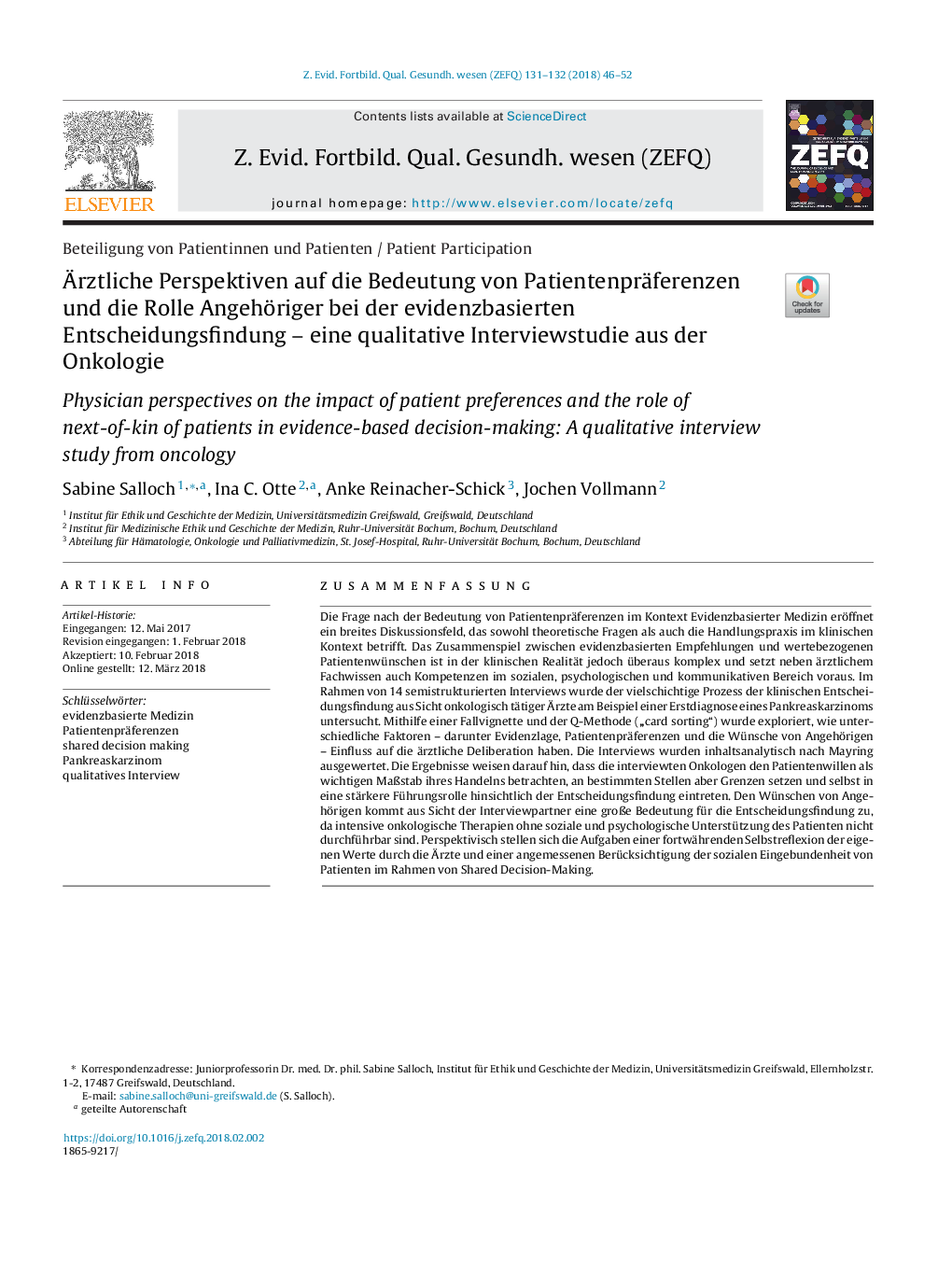| Article ID | Journal | Published Year | Pages | File Type |
|---|---|---|---|---|
| 7529562 | Zeitschrift für Evidenz, Fortbildung und Qualität im Gesundheitswesen | 2018 | 7 Pages |
Abstract
The impact of patient preferences in evidence-based medicine is a complex issue which touches on theoretical questions as well as medical practice in the clinical context. The interaction between evidence-based recommendations and value-related patient preferences in clinical practice is, however, highly complex and requires not only medical knowledge but social, psychological and communicative competencies on the side of the physician. The multi-layered process of oncology physicians' clinical decision-making was explored in 14 semi-structured interviews with respect to a first diagnosis of a pancreatic adenocarcinoma. A case vignette was used and the Q method (“card sorting”) was applied to analyze the influence of different factors (such as evidence, patient preferences and the role of relatives) on physicians' deliberations. Content analysis (Mayring) was performed. The results show that the participating oncologists consider patient preferences as an important guidance which, however, is limited on certain occasions where the physicians assume a leadership role in decision-making. From the interviewees' perspectives, the preferences of the patients' relatives are likewise of high importance because debilitating oncologic treatments can only be carried out if patients have both social and psychological support. There is a need for an ongoing reflection of the physicians' own values and due consideration of the patients' social role within the context of shared decision-making.
Keywords
Related Topics
Health Sciences
Medicine and Dentistry
Public Health and Health Policy
Authors
Sabine Salloch, Ina C. Otte, Anke Reinacher-Schick, Jochen Vollmann,
